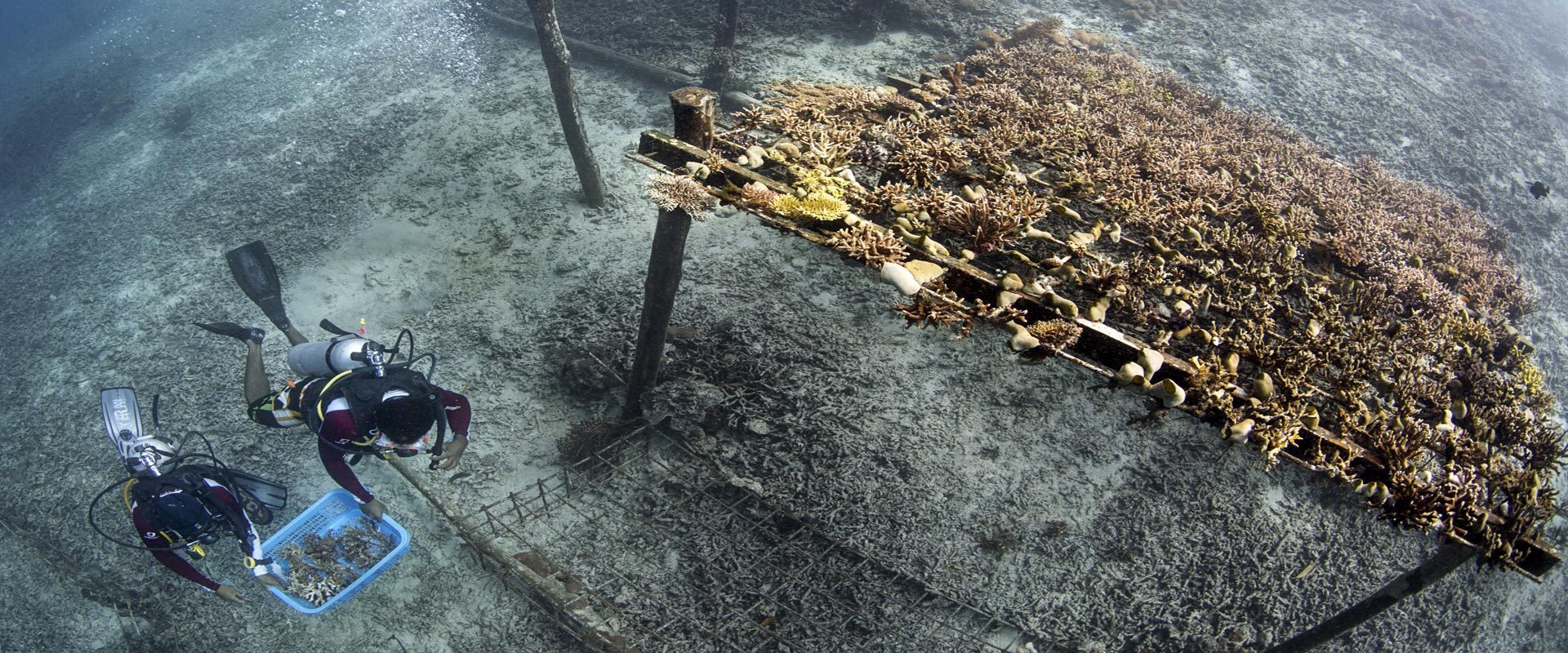Yaf Keru-A Reef Restoration Project and Why We Need It in Raja Ampat by Lynn Lawrence
Yaf Keru-A Reef Restoration Project and Why We Need It in Raja Ampat
by Lynn Lawrence
In the heart of the Coral Triangle, Raja Ampat is one of the world’s last strongholds where healthy coral reef systems still thrive. Recognized as the most bio-diverse marine habitat on earth these pristine reefs burst with an abundance of life and color. This rich archipelago is also home to 114 small villages, whose inhabitants rely on the reefs for survival and daily sustenance. A divers dream, these reefs also support a lucrative tourism economy, and provide livelihoods to significant percentage of the local community.
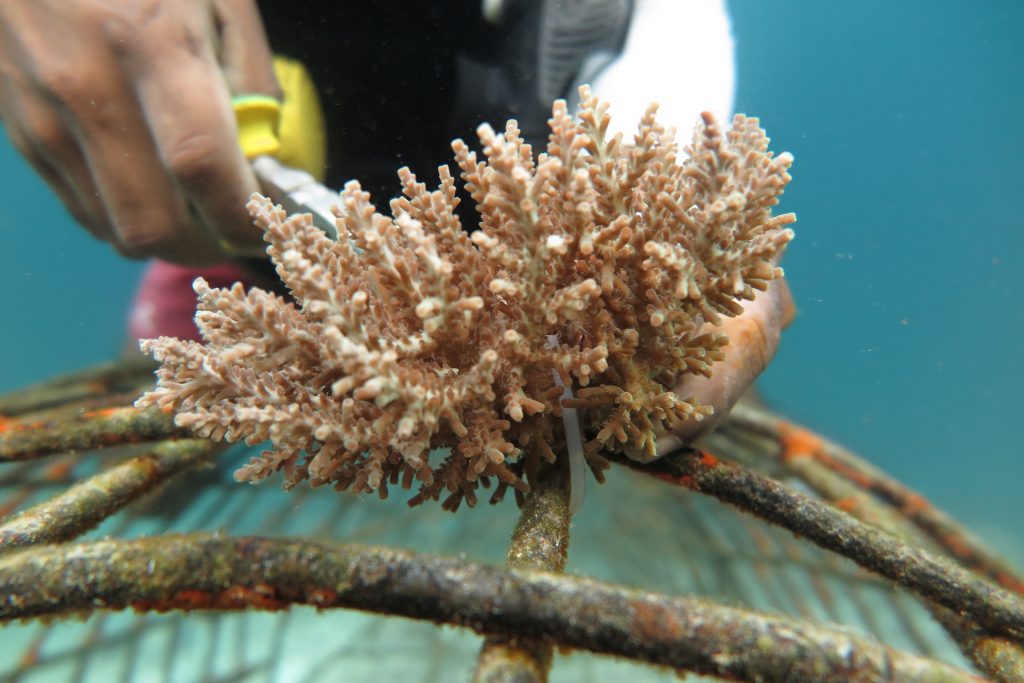
Attaching a healthy coral to the artificial reef structure
Yet sadly, numerous reefs in the region were destroyed by destructive fishing practices (dynamite and cyanide) in the 80s & 90s. To this day these reefs have not yet recovered, now being little more than areas of coral rubble which support little to no life. Additionally, the current rapid expansion of tourism in the region is bringing with it new impacts, such as pollution, waste, anchor and boat damage, all of which threaten the pristine marine environment.
At a point in time where coral reef degradation is occurring worldwide due to human activity, and in response to human induced climate change, it is essential and common sense that we design and develop conservation tools to respond to these current and future degradation issues. Rather than waiting for the local reefs to become damaged or lose their natural resilience, Raja Ampat SEA Centre’s reef restoration project “Yaf Keru” (meaning Coral Garden in the local Papuan language) is aiming to:
– Evaluate and optimize the current and remarkable recovery potential of Raja Ampat’s reefs.
– Restore, maintain and conserve local reef systems whilst supporting sustainable community development.
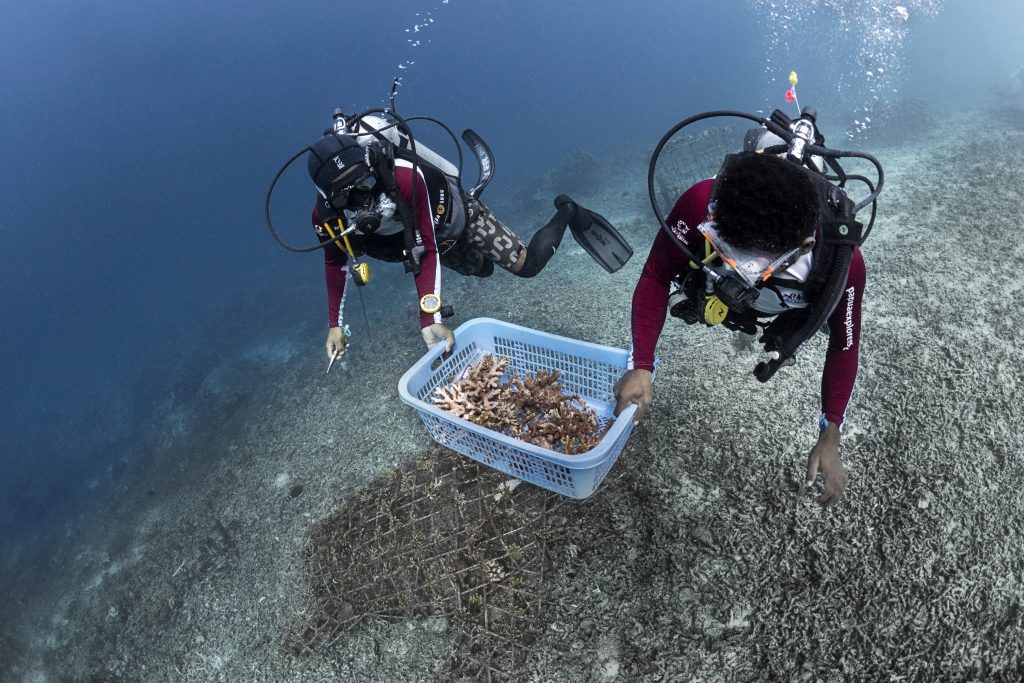
Collecting broken corals for transplanting to the artificial reef structure
With more then 32 artificial reef structures installed, and over 5000+ coral fragments transplanted, to date Raja Ampat SEA Centre has restored just over 500 sq. meters (5,500 sq. feet) of degraded reef, located at nearby Papua Explorers Resort. The oldest structures (16 months) are now covered in healthy corals that support a complex food web and provide habitat for a multitude of invertebrates and juvenile fish, and several intermediate predators such as grouper, snapper and sweetlips.
Through direct employment on this project Raja Ampat SEA Centre also provides sustainable and alternative livelihoods to local community members, who are employed in paid positions as “Coral Gardeners” and conduct activities that enhance local ecosystems, as opposed to exploiting them. Our Coral Gardeners design, build and install the artificial reef structures, collect and transplant the fragments, oversee the maintenance of the project and also guide resort guests on dives through Yaf Keru and coral transplantation dives.
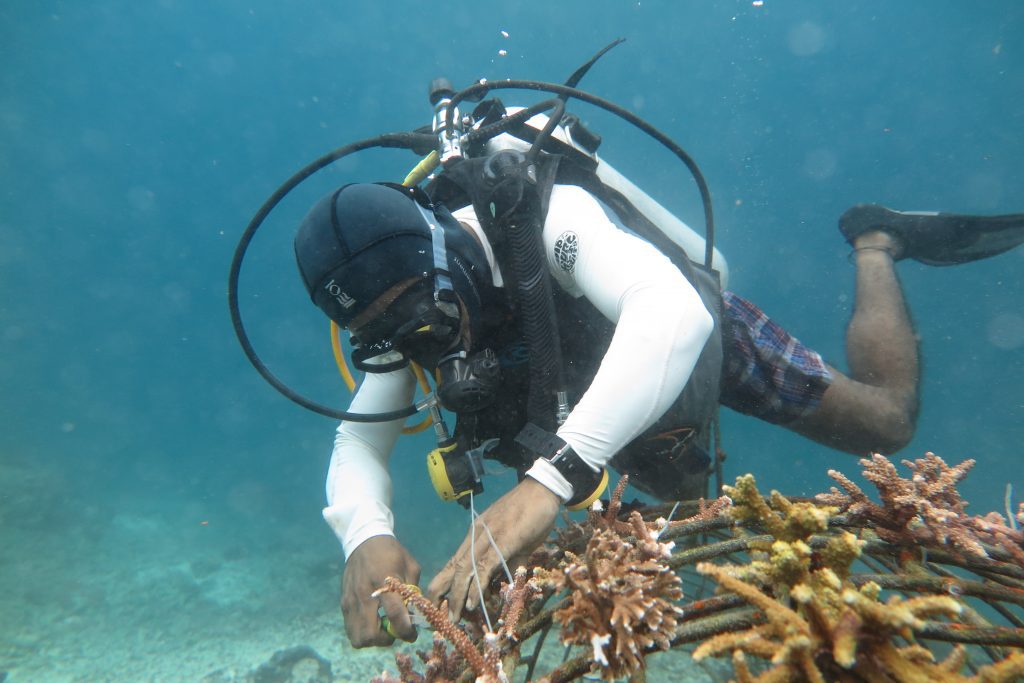
Maintaining the wire grid of the reef structure
The Yaf Keru project also serves as a platform to raise awareness and educate both local and international communities about coral reef ecology and the functions and services they provide. It is the ideal playground, classroom and laboratory for village children, tourists and scientists alike, providing a hands-on experience of coral ecology and restoration work.
Raja Ampat SEA Centre has recently been awarded the Blue Abadi Fund to further expand reef restoration efforts in the Dampier Strait region. Over the next few months the team will be installing a number of artificial reef structures in order to restore approximately 500m2 of degraded reef, located in an area that receives a high volume of tourist traffic. Through this project Raja Ampat SEA Centre will be able to train and employ some new Coral Gardeners from the local community to monitor and manage the sites once installed, and the site will serve as an educational platform and the second marine park tag checkpoint in the Dampier Strait region.
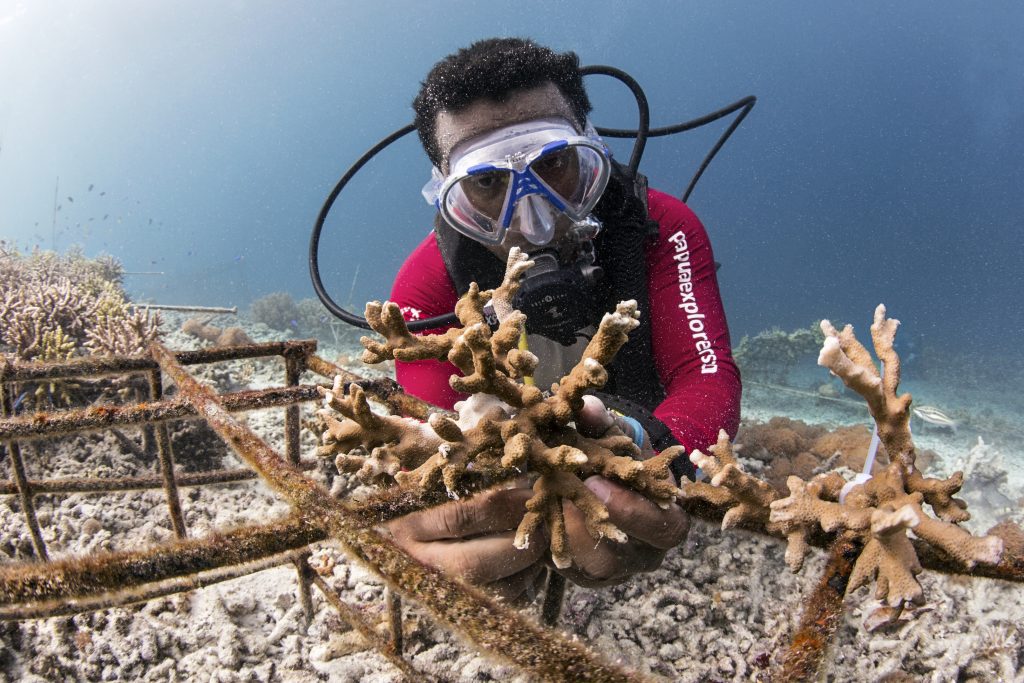
Coral Gardener “Tomi” attaching a coral to the grid
With one fifth of the world’s coral reefs dead or severely damaged, and the decline continuing at an alarming speed, by mid century half the worlds coral will be gone, and with such sparse numbers remaining, successful reproduction and recovery will be impossible.
Therefore, it is critical that we commit and dedicate our efforts to conserving the marine environment in Raja Ampat; the last coral reef stronghold on the planet.
To watch a video of the work click here, VIDEO.
To learn more about the project follow the link, Yaf Keru Reef Restoration Project.
Lynn Lawrance is the Co-Founder; Raja Ampat SEA Centre





































